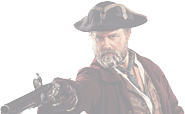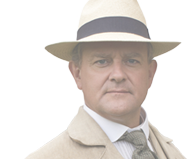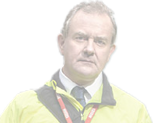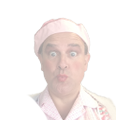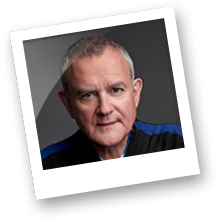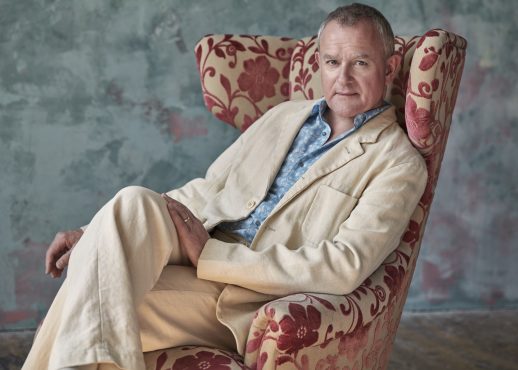Interview by Laura Reid for the Yorkshire Post
Hugh Bonneville was sat in the corner of his nursery school classroom, playing with toys underneath a piano. “I think the teacher must have asked if I would come out and do something in front of the class, along with others,” he says. “I remember I was quite happy under there and a bit self-conscious about coming out and performing. But at the same time when I was out there performing, I absolutely loved it.”
There was a tension there, which Bonneville says he has sensed within him ever since. Though any thoughts of keeping under the radar for fear of looking daft have thankfully lost out to the thrill he gets from performing in character and telling stories.
“I feel extremely fortunate to do something I have loved since I was a child,” the 58-year-old reflects. “I still now, 35 years on, half expect someone to tap me on the shoulder and say you’ve had your fun, now go and get a ‘proper’ job.”
That ‘fun’ has included several seasons with the National Theatre, a stint with the Royal Shakespeare Company, adventures with Paddington bear and a starring role as patriarch of the Crawley family in Downton Abbey. And much more of course.
He traces it all back to the day he got his acting equity card in 1986. It paved the way for his professional debut at the Open Air Theatre, in London’s Regent’s Park, bashing a cymbal in A Midsummer Night’s Dream and understudying Ralph Fiennes as Lysander.
Now one of the nation’s most accomplished actors, Bonneville has written a memoir, a collection of stories painting a brilliantly vivid picture of a career on stage and screen. He’ll be talking about it during an ‘in conversation’ event at the Off the Shelf Festival of Words in Sheffield on Sunday.
The book’s title, Playing Under The Piano: From Downton to Darkest Peru, is a nod to that nursery school memory. It’s also a gentle reference to his late father, whose journey with dementia features in the book as Bonneville explores who and what has influenced his time as an actor.
“He was a wonderful amateur piano player,” Bonneville says. “One of the great memories I have of him as he came towards the end of his life was that as his brain began to fog, the skill that remained with him was his ability to play the piano.”
His father’s illness was one of the reasons Bonneville began to note down his own memories: “I thought maybe I should write some stuff down before things get a bit blurry,” he says.
He’d been “badgered” to write by someone in the book trade for some time and the memoir started out as a collection of stories about being in theatre, film and television “and some of the bonkers things that have happened along the way”.
“Soon the subconscious takes over when you’re writing and I was wanting to write about my father and my mother and my brother, all of whom have passed on. I began to realise I was writing about the things that have influenced me, the people who have influenced me along the way to do what I do and what makes me tick… It does touch on some big themes of life as well as ‘ooh what’s (Dame) Maggie Smith like to work with?’”
The pair were co-stars in Downton Abbey. Over its six seasons, the show won dozens of awards worldwide, and Bonneville received a Golden Globe and two Emmy nominations for his performance as Robert, Earl of Grantham.
Recalling first seeing the script for the first episode, he says: “I really loved it…I was captivated by the characters and enjoying their company and when I turned over the last page, I wanted to know what happened next…And I think that’s what translated onto the screen. People enjoyed the characters and latched on to their favourites and crucially they wanted to know what happened next so they tuned into the next episode. It snowballed from there but none of us could have predicted that it would go on to become not only six seasons and two movies but be so embraced around the world.”
Stories tied to Bonneville’s Downton days of course feature in the book. There are also tales from his time with the National Theatre, where he’d watch actors like Michael Gambon and Anthony Hopkins from the wings. He was learning all the time, absorbing how they handled an audience and how they got into character and played their parts.
Yorkshire’s Dame Judi Dench was generous to him as he started out.
“I was extremely nervous. A new boy to the National Theatre, holding my script in my hand, shaking with nerves as I went up to do my first scene with her in rehearsal – I had this little tiddly part.
“She was incredibly calm and generous with me. I have had the pleasure of working with her several times over the years and she really is a national treasure. I often find the very greatest actors are those with the least ego. They have less to prove because they have a natural talent they are blessed with.”
Bonneville’s parents were “guardedly supportive” of his, as he started out in the industry. His father was a urological surgeon, his mother a nurse, who later took a part time job in the foreign office, where unbeknownst to Bonneville, she worked doing filing for the UK’s Secret Intelligence Service.
“Long after she had retired, about 25 years later, I opened the evening paper one day and there was a picture of her office block and it said MI6 building to be sold. I couldn’t believe it. It was called Century House. I rang mum and said mum did you used to work at Century House? She said yes. And I said but that’s MI6. And she said yes. I said were you a spy? And she said no I just did some filing.”
Jobs aside, Bonneville’s parents exposed him to the arts from a young age. “And by that I mean everything from going to see National Trust properties to theatre, concerts and galleries, most of which bored the c**p out of me as a kid,” he admits. “But it was there, part of the background noise of my life.
“It was not a highfalutin, high art thing with them, it was just what they did, like dad playing squash or mum doing the church flowers. It was just part of their life and it became part of mine. I realised as I got older how incredibly fortunate I was to have had that as just normal. It made me realise how many people in our country don’t have that opportunity and aren’t exposed to the arts.
“Especially now increasingly in education where the arts have been sidelined because they are not ‘useful’. I get very much on my high horse about the importance of arts in society…It’s what sets us apart from the animals frankly is intellectual curiosity and the ability to express ourselves through paint, through dance, through music, through creativity of alsorts.”
Bonneville is passionate about supporting charities and initiatives that encourage young people to express themselves and engage in the arts. The National Youth Theatre (NYT) is among those for which he is a patron.
“The skills you learn about cooperation, about dialogue, about looking each other in the eye and trying to tell your character’s truth are useful in any situation,” says Bonneville, who was part of the NYT as a youngster. “You go into an interview for any job and you want to be able to look the person in the eye and talk to them and that’s the kind of skill any youth theatre teaches you as well as the confidence to express yourself, whether you’re going into the profession or not.”
Bonneville hadn’t necessarily planned to. In fact, he studied theology at Cambridge. There, in his second year, having been involved in a number of plays, he heard about “a thing called drama school”.
He decided to give acting a proper go, setting himself a target of three years to get an equity card. “I was fairly realistic about it and I got lucky. Luck was a huge part of it,” he says.
Still, he’s had his fair share of rejections.
“It’s very hard to not take it personally. You do just have to pick yourself up, brush yourself down and move onto the next audition because that is 90 per cent of the job is taking rejection and occasionally you get lucky. You have to have a very thick skin but also a thin one in that when you are asked to show your talent and versatility you can really lay yourself bare to it and dig into different emotions within you.
“I always say to young actors if you think acting is an option but you have one or two other things to explore, whether it’s law or banking or making widgits, do that for heaven’s sake. Because if you think [acting] is an option, it’s probably not for you. It’s got to be a compulsion. You’ve got to be able to take the brickbats that are thrown at you and say never mind I still want to do it. And that takes quite a lot of resilience.”
Hugh Bonneville is at the University of Sheffield’s Off the Shelf Festival of Words on Sunday, October 23. Visit offtheshelf.org.uk?
Playing Under the Piano: From Downton to Darkest Peru is out now.


